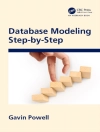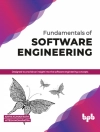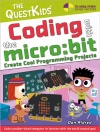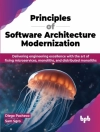Presenting the concept and design and implementation of configurable intelligent optimization algorithms in manufacturing systems, this book provides a new configuration method to optimize manufacturing processes. It provides a comprehensive elaboration of basic intelligent optimization algorithms, and demonstrates how their improvement, hybridization and parallelization can be applied to manufacturing. Furthermore, various applications of these intelligent optimization algorithms are exemplified in detail, chapter by chapter. The intelligent optimization algorithm is not just a single algorithm; instead it is a general advanced optimization mechanism which is highly scalable with robustness and randomness. Therefore, this book demonstrates the flexibility of these algorithms, as well as their robustness and reusability in order to solve mass complicated problems in manufacturing.
Since the genetic algorithm was presented decades ago, a large number of intelligent optimization algorithms and their improvements have been developed. However, little work has been done to extend their applications and verify their competence in solving complicated problems in manufacturing.
This book will provide an invaluable resource to students, researchers, consultants and industry professionals interested in engineering optimization. It will also be particularly useful to three groups of readers: algorithm beginners, optimization engineers and senior algorithm designers. It offers a detailed description of intelligent optimization algorithms to algorithm beginners; recommends new configurable design methods for optimization engineers, and provides future trends and challenges of the new configuration mechanism to senior algorithm designers.
Tabla de materias
From the Contents: Brief History and Overview of Intelligent Optimization Algorithms.- Recent Advances of intelligent optimization algorithms in manufacturing.- Dynamic Configuration Intelligent Optimization Algorithms.- Improvement and hybridization of Intelligent Optimization Algorithms DC-OIA.
Sobre el autor
Dr. Fei Tao is currently a Professor at School of Automation Science and Electrical Engineering in Beihang University (Beijing University of Aeronautics and Astronautics). He obtained his Ph.D from Wuhan University of Technology in 2008. From Sep. 2007 to Mar. 2009, he worked as a research scholar and postdoctoral researcher at University of Michigan-Dearborn, USA. His research interests include service-oriented manufacturing such as cloud manufacturing and manufacturing grid, manufacturing service management and optimization, intelligent optimization theory and algorithm. He is the author of 2 monographs and over 60 journal and conference articles of these subjects. Dr. Tao was nominated and elected to be a research affiliate of CIRP (The International Academy for Production Engineering) in 2009. He is currently the editor of International Journal of Service and Computing-oriented Manufacturing (IJSCOM), and the editorial board member of International Journal of Modeling, Simulation and Scientific Computing and Journal of Industrial Engineering.
Dr. Lin Zhang is a Professor of Beihang University. He received the B.S. degree in 1986 from the Department of Computer and System Science at Nankai University, China. He received the M.S. degree and the Ph.D. degree in 1989 and 1992 from the Department of Automation at Tsinghua University, China. He served as the director of CIMS Office, China National 863 Program, from 1997 to 2001. From 2002 to 2005 he worked at the US Naval Postgraduate School as a senior research associate of the US National Research Council. Currently, he serves as a member of the Board of Directors & Executive Committee of the Society for Modeling & Simulation International (SCS), the vice president of Chinese Association for System Simulation (CASS) and the Federation of Asian Simulation Societies (ASIASIM), an IEEE senior member and associate Editor-in-Chief and associate editors of 5 peer-reviewed international journals. Heauthored and co-authored 160 papers, 5 books and chapters. His research interests include cloud manufacturing; service computing and high performance computing; knowledge engineering; modeling, simulation and optimization for complex systems.
Yuanjun Laili received the MS Degree from School of Automation Science and Electrical Engineering, Beihang University, Beijing, China, in 2012. She is studying for a Ph.D. Degree in School of Automation Science and Electrical Engineering at Beihang University. Her main research interests include intelligent optimization, mathematical programming, parallel computing and algorithms in the field of resource management in manufacturing and distributed & parallel simulation.












